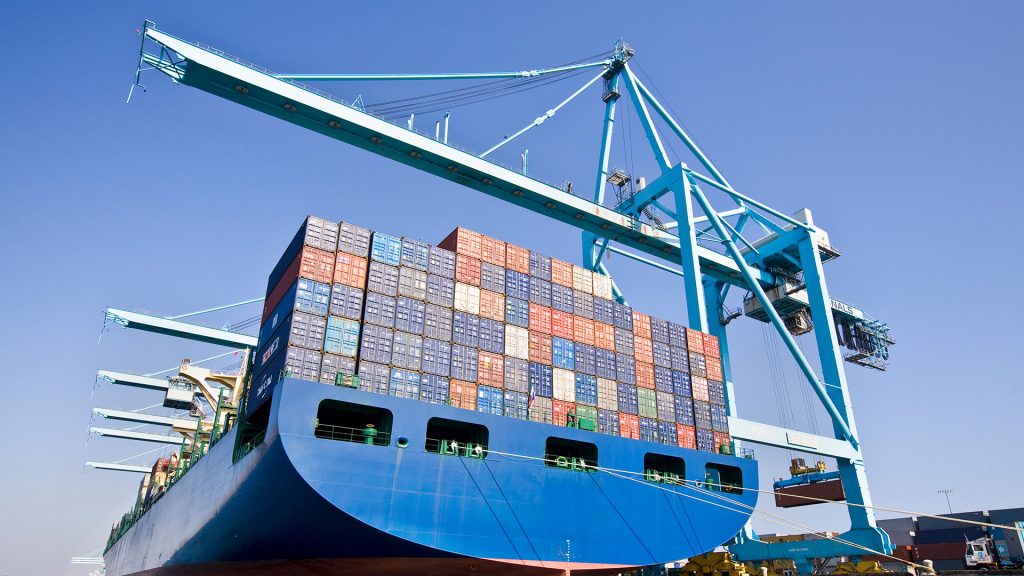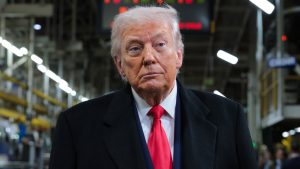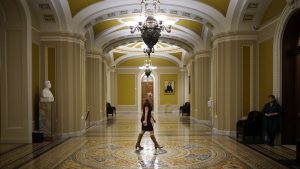Tariff price increases aren’t really inflation: Former Fed president
Ella Greene April 25, 2025 0
As President Donald Trump puts trade policy at the center of his second term, a former regional Fed president said tariffs don’t necessarily cause inflation. Instead, former St. Louis Fed President James Bullard said companies need to pay close attention to market conditions before raising prices.
Bullard pushes back against inflation narrative
“The tariffs feeding through to inflation, there’s been a ton of talk about this,” Bullard told Straight Arrow News on Friday, April 25. “I push back against that a little bit. That’s not really inflation. That’s a one-time increase in the price level. And also, those products are in competitive markets just like everyone else.
“So just because your product happened to get a tariff put on it, it doesn’t mean that you can just forget about all your competition on the store shelf,” said Bullard, who now serves as dean of the Mitch Daniels School of Business at Purdue University. “You still have to sell into a market that has other products in it that don’t have the tariff side.”
Investopedia says inflation is defined as “a gradual loss of purchasing power that is reflected in a broad rise in prices for goods and services over time.” To Bullard’s point, one-time price increases are not gradual or over time.
Bullard’s comments come as the U.S. and China have made differing comments on the state of trade talks between the two countries.
“We did see a trade war before in 2018, 2019,” he said when asked about the tariff starts and stops in recent weeks. “It wasn’t at this quite as high a level of proposed tariffs and stuff, but still, there was definitely a very big war of words between China and the U.S. They eventually came to a deal. But during that, it was a similar situation.”
Still, current Federal Reserve Board of Governors member Christopher Waller told Bloomberg that tariffs could cause issues in the labor market.
“It wouldn’t surprise me that you might start seeing more layoffs, a tick up in the unemployment rate going forward, if the big tariffs in particular come back on,” Waller said Thursday, April 24.
“I would expect more rate cuts, and sooner, once I started seeing some serious deterioration in the labor market,” Waller said.
Trump’s Powell problem
On Tuesday, April 22, President Trump backed away from veiled threats to fire Fed Chair Jerome Powell. The president remains vocal about what he would like to see from the central bank.
“I believe [Powell’s] making a mistake by not lowering interest rates,” Trump said Wednesday, April 23. “And I think as well as we’re doing, we’d do much better. He’s keeping rates too high.
“The right thing is to lower interest rates,” the president continued. “So we’ll see what happens. I think we’re sitting on something that’s going to be very good. With all the tariff money starting to come in, our country is going to do really well.”
But the former St. Louis Fed president doesn’t necessarily agree with President Trump’s assertion that Powell is “too late” on policy.
“The committee already lowered by 100 basis points during the second half of 2024,” he said. “And I think that put the committee in very good position for 2025. And they’ve got some more rate cuts projected. So we’ll see if those actually come out or not. I don’t really see them being way out of position.”
Is the Fed interest-rate committee feeling the pressure?
Bullard told SAN that members of the Federal Open Market Committee regularly take input from outside sources.
“I know it’s a big thing when it’s the president, but he’s just one of many voices that have an opinion about where U.S. monetary policy should go,” he said. “The FOMC is a large group. They have a lot of great staff around. They’re very analytical, almost to a fault. They look at the data in great detail. They do get a lot of opinions from a lot of different angles.
“They talk to businesses around the country,” Bullard continued. “They talk to people in the various districts, they get people from Wall Street talking, and international input. So really, everybody seems to have an opinion. It’s one of those things. And so it’s not really that unusual to have somebody weighing in.”
Related Stories
Ella Rae Greene, Editor In Chief
Ella Greene
Ella and the staff at Clear Media Project (CMP) curate these articles.
Unless otherwise noted CMP does not write these articles.
The views, thoughts, and opinions expressed in the articles published on this blog belong solely to the original authors and do not necessarily reflect the views of the blog owner. The blog owner does not claim ownership of the content shared by contributors and is not responsible for any inaccuracies, errors, or omissions.
All rights and credits goes to its rightful owners. No Copyright Infringement is intended. If you believe any content infringes on your rights, please contact us for review and potential removal.





